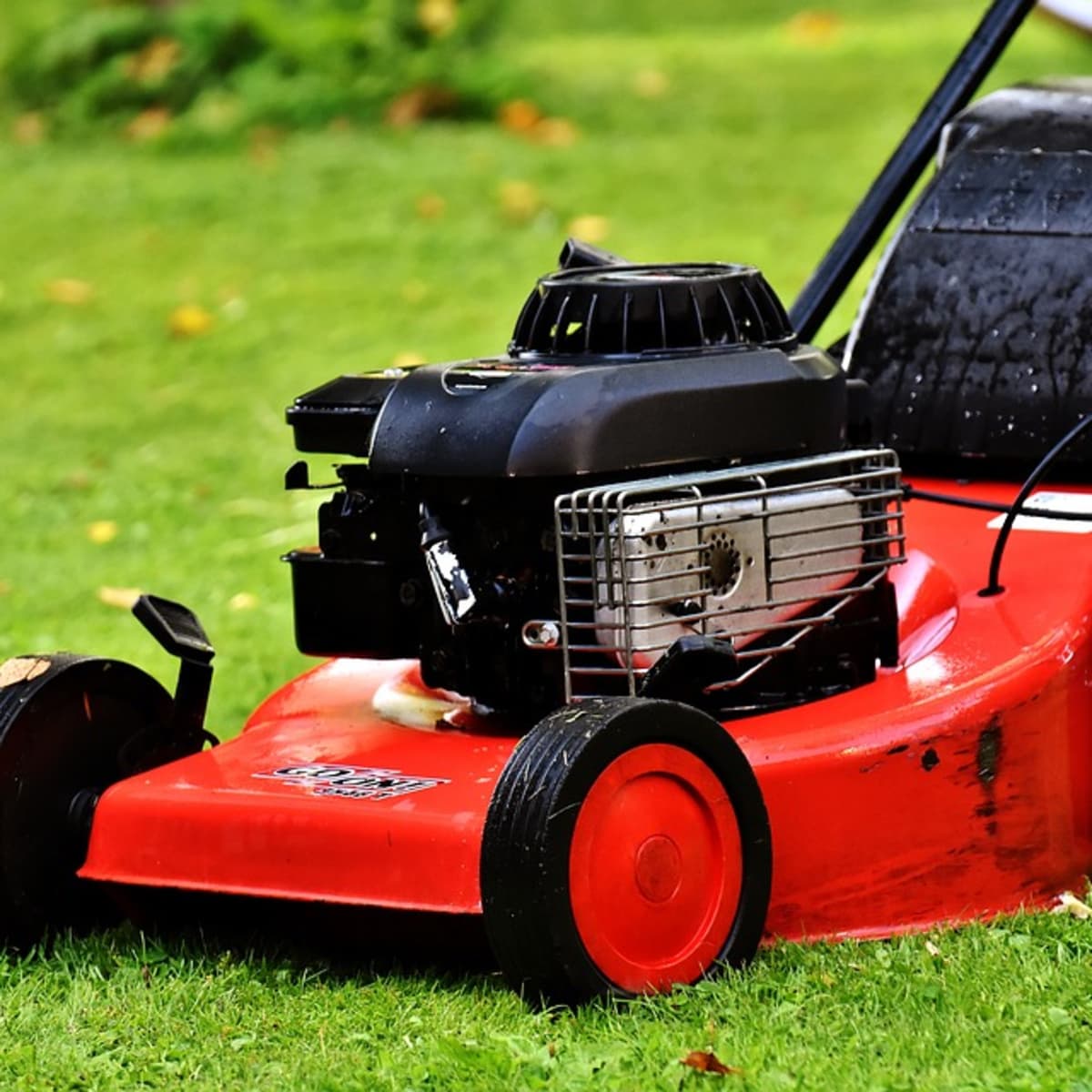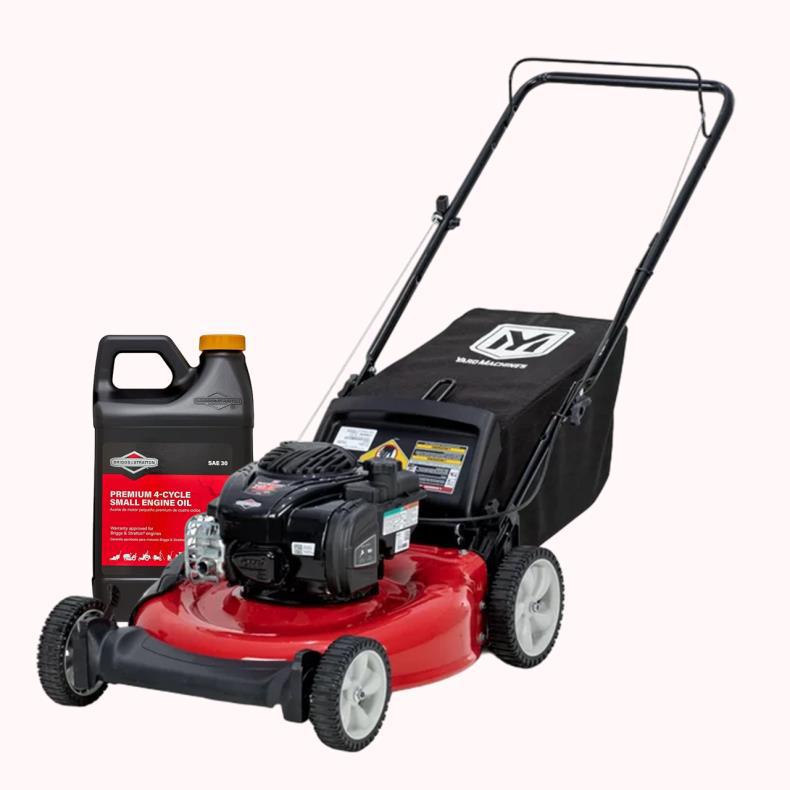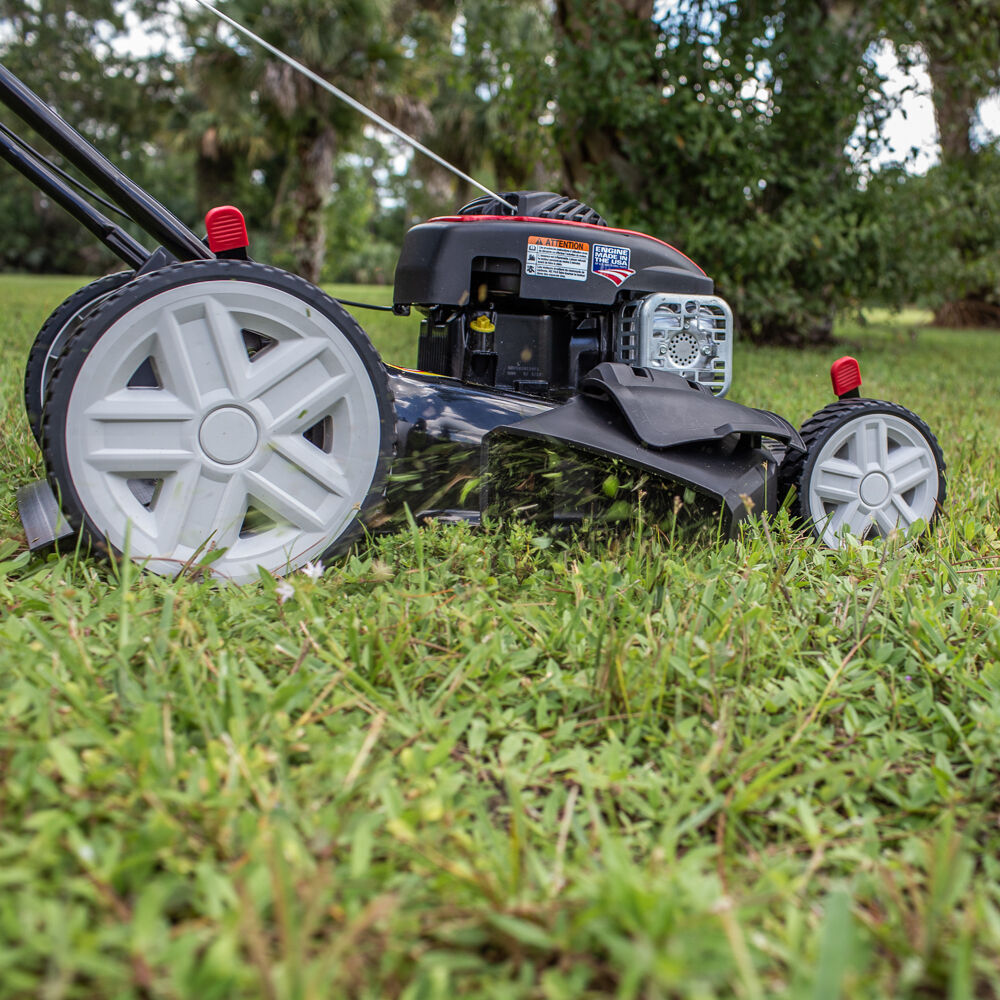Identifying Common Lawn Mower Issues
Why my lawn mower won’t stay running? When your lawn mower won’t stay running, several issues could be at fault. Here’s how to pinpoint the problem and get back to grooming your lawn with ease.
Inspecting Fuel Quality and Replacement Needs
Start by examining the fuel. Old or contaminated fuel is often to blame for a lawn mower that doesn’t stay running. Drain old fuel and refill with fresh gas to solve this common issue.
Checking the Air Filter for Contamination
A dirty air filter can choke the engine, preventing it from running smoothly. Inspecting and replacing a contaminated air filter can quickly fix this problem.
Troubleshooting the Carburetor for Clogs and Dirt
A clogged carburetor is a surefire way to trouble. If you’re up for it, clean the carburetor’s ports and replace the fuel filter to enhance performance.
Understanding the Role of the Choke in Fuel Mixture
If the choke is incorrectly set, it can flood the engine with fuel, causing it to stall. Check the choke setting and adjust it to ensure the right fuel mixture.
Assessing the Spark Plug for Faults and Misfires
A faulty spark plug may misfire, leading to engine cuts. Inspect the spark plug and clean or replace it if necessary to keep your lawn mower running correctly.
Step-by-Step Lawn Mower Troubleshooting
When your lawn mower won’t stay running, there’s a process to pinpoint and fix the issue.
How to Safely Clean or Replace the Air Filter
Start with the air filter. Turn off the mower and disconnect the spark plug. Locate the air filter and remove it. Check for dirt or oil and decide if cleaning — for foam filters — or replacing is needed. If dirty, replace immediately. Remember, after 25 hours of use, replacement is best.
Carburetor Maintenance and Cleaning Tips
Next, inspect the carburetor. Ensure the engine is off before you begin. Remove the carburetor bowl and clean any debris. Use a carburetor-specific cleaner — not water — to spray the ports and bowl. Reconnect all parts securely after cleaning. If issues persist, consider replacing the fuel filter or consulting a specialist.
Handling Fuel Mixture Problems with the Choke
Check the choke if the engine floods. Make sure the mower is cold, then set the choke lever to the ‘Open’ position. If your lawn mower has a manual choke, adjust it to prevent a too-rich fuel mixture. If the choke is faulty, clean with spray or replace if cleaning doesn’t solve the problem.
Replacing and Servicing the Spark Plug
Finally, examine the spark plug. Remove the plug using a wrench and clean off debris with a brush. If you find a dark residue, it’s time for a new spark plug. Install the new plug, reconnect the cable, and test your lawn mower. Regularly servicing your spark plug can prevent many start-up issues.
When to Seek Professional Lawn Mower Repair
Dealing with a problematic lawn mower can be frustrating. While many issues can be handled with DIY steps, there are signs that suggest when it’s time to call a specialist. If you’ve taken all the troubleshooting steps – from checking the fuel to cleaning the spark plug – and your lawn mower still won’t stay running, a professional’s help may be necessary. Other signs include strange noises, smoke, or if the mower vibrates excessively during use. Frequent engine stalling despite proper maintenance is another indication that a technician should take a look. A professional can diagnose issues that aren’t easily visible and can get your equipment back to peak condition efficiently.
Signs That Indicate a Need for a Specialist
If you witness the following signs, consider hiring a repair specialist:
- The engine starts, then dies repeatedly even with fresh fuel.
- The lawn mower produces smoke or makes unusual sounds.
- The mower vibrates more than usual, indicating possible internal issues.
- You’ve replaced parts like the spark plug or air filter, but the problem persists.
- The troubleshooting tips you’ve tried haven’t had any effect.
Comparing Quotes from Repair Pros
Once you’ve decided to seek professional help, it’s wise to compare quotes from different repair pros. Look for specialists with good reviews and reasonable rates. Ask for detailed quotes that include labor and parts costs. Ensure they have experience with your mower’s brand and model. This can save you money and ensure that you receive quality service.
The Cost-Effectiveness of Repair Versus Replacement
Weigh the cost of repair against buying a new lawn mower. Consider age, model, and overall condition. If the repairs are half the cost of a new mower, it may be more cost-effective to replace it. However, if it’s a minor issue, or if your mower is high-end and just out of warranty, repairing it might be the best option. A specialist can provide you with a cost estimate that can help in making the final decision.
Preventative Maintenance for Lawn Mowers
Preventative maintenance is key to ensuring your lawn mower functions year after year. Regular attention can avoid many common issues.
Routine Checks and Cleaning for Optimal Performance
To keep your lawn mower running smoothly, perform routine checks and clean it often. Make sure to inspect the oil level and replace it if it looks dirty. Check the air filter and clean or change it as needed. Keep the blades sharp and balanced for a consistent cut.
Understanding Your Lawn Mower’s Maintenance Schedule
Each lawn mower comes with a manufacturer’s guidance on maintenance. Follow the schedule for tasks like oil changes, blade sharpening, and filter replacements. This will keep your lawn mower in top condition. Stick to these guidelines for the best results.
Tips for Storing Your Lawn Mower Off-Season
Proper off-season storage protects your lawn mower. Clean the mower thoroughly before storing. Drain the fuel or add a stabilizer to prevent damage. Store the mower in a dry, covered area to protect it from weather and rust.
DIY Fixes Versus Professional Services
When dealing with lawn mower issues, it’s critical to know when you can fix them yourself or when to call an expert. Understanding the problem is the first step. If it’s simple, a DIY approach might save you time and money. But, remember, complex repairs need a professional’s touch.
Evaluating When to DIY and When to Call an Expert
Start by assessing the situation. Can you identify the problem accurately? Are you comfortable with the tools required? If yes, you might handle a DIY repair. Yet, if the issue remains after your attempts, it’s likely time to seek an expert.
The Risks and Rewards of Self-Repair
DIY repairs can be gratifying and less expensive. But, they come with risks. Mistakes can lead to more damage or require costly fixes later. Weigh the potential savings against these risks before diving in.
Finding Quality Lawn Mower Repair Services Near You
If you opt for a professional, finding a reliable service is key. Search online for highly-rated lawn mower repair services in your area. Look for providers with strong customer reviews and clear pricing. This way, you get quality service and value for money.
Additional Resources for Lawn Mower Owners
Owning a lawn mower comes with responsibilities. Knowing where to turn for help can make maintenance easier. Below are resources that lawn mower owners can use to tackle common problems and conduct proper upkeep.
Forums and Online Communities for Troubleshooting
Online forums and communities are great places to seek advice. On these platforms, you can find other lawn mower owners and experts who share their experiences. They can offer practical tips for fixing issues.
- Lawn Mower Forum: A hub for mower owners seeking repair tips.
- Reddit’s r/lawnmowers: A subreddit for discussions and advice.
- GardenWeb’s Lawn Care forum: Provides insights into lawn mower care.
These sites allow you to ask questions and find solutions that others have tested and approved.
Recommended Tools and Products for Maintenance
The right tools turn tough jobs into easy fixes. Here are some essentials for lawn mower maintenance:
- Carburetor cleaner: Keeps the carburetor free from gunk.
- Spark plug wrench: Essential for changing spark plugs.
- Air filter: Get extras to switch out dirty ones as needed.
- Fuel stabilizer: Helps maintain fuel quality during storage.
Stocking up on these will help you maintain your mower’s health.
Learning from Manuals and Manufacturer Guides
Manuals and guides are the first places to check for help. They include:
- Model-specific instructions: Provide tailored advice for your mower.
- Troubleshooting sections: Help diagnose and fix common problems.
- Maintenance schedules: Tell you when to service each part of your mower.
Always refer to the manufacturer’s guide for the most accurate information for your specific lawn mower model.
By using these resources and keeping your tools handy, you’ll be equipped to handle lawn mower challenges with confidence. Remember, for those persistent issues, don’t hesitate to seek professional help.



